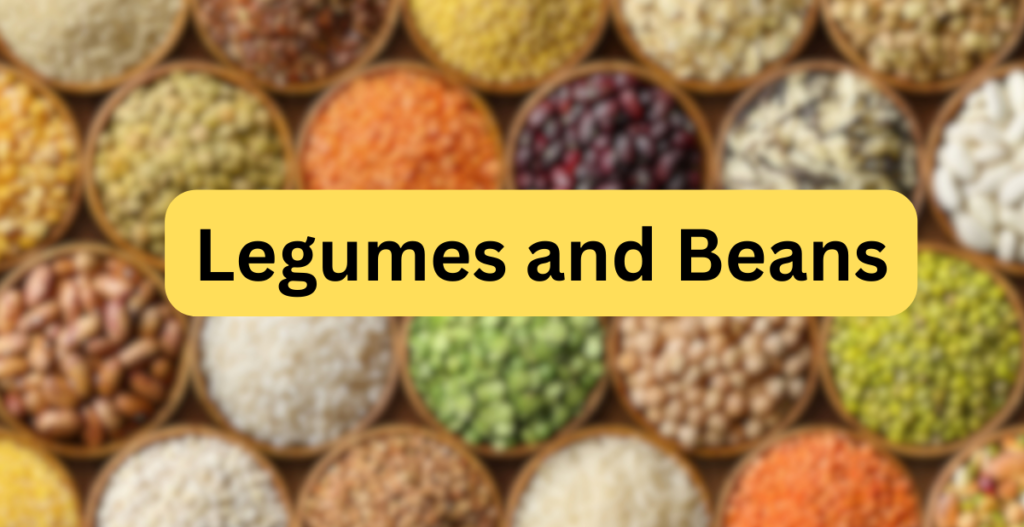When individuals complain of stomach discomfort or gas, it’s generally because they’ve eaten something that has caused it in the first place. Reduce flatulence by learning which meals cause gas and bloating. Everyone has gas and bloating at some point in their lives. It is normal for the body to expel extra gas, but excessive gassiness or frequent occurrence may cause embarrassment and discomfort. Why do certain meals cause gas? And what can be done about it? That’s the subject of this essay.
Legumes and Beans

Beans and other legumes, such as peas and lentils, have a reputation for generating gas in the gastrointestinal system. It is difficult for the body to digest the complex sugar raffinose found in beans. Beans are also a good source of fiber, which might cause flatulence. Beans may cause flatulence in some people, but the effect is not the same for everyone. People who eat baked beans and pinto beans are more likely to have gassiness than those who eat black-eyed peas, according to a 2011 research. If you are tired of gas and are looking forward to some long term solution for the same, you might reach out to Zyropathy, alleviating the symptoms in a natural way.
Cruciferous Veggies like Broccoli and Bok Choy
Broccoli, along with other cruciferous vegetables, is high in raffinose and fiber, much like beans and legumes. There are various cruciferous vegetables that are rich in raffinose and fiber including cauliflower, brussels sprouts, cabbage, and even asparagus. For example, asparagus has been known to produce unusually pungent gas when consumed. Hence opt for Albinate pills from Zyropathy, your immediate resolution for gas.
Whole Grains Like Wheat and Rye
Raffinose, which is found in wheat and other whole grains, except for rice, is accompanied by a substantial quantity of fiber, leading to the occurrence of gas and bloating. Gluten is a protein found in wheat, barley, and rye, as well as other whole grains. Certain people may feel gas and bloating on the consumption of gluten. There are a variety of gluten sensitivities, including non-celiac gluten sensitivities and celiac disease, try to minimize your consumption of gluten rich food items.
Onions
Onions are a frequent ingredient in a wide variety of dishes. Onions may be consumed raw or are added in almost every dish we prepare. Fructose, a sugar found in onions, is broken down in the intestines during digestion, breakdown of this sugar component causes gas. Onion gas is also likely to produce an unpleasant odor. Though you can’t avoid this ingredient but may take several other precautions to alleviate the symptoms.
Garlic
Garlic is a common ingredient in many cuisines throughout the globe, yet it may also produce gas. People who are allergic or intolerant to garlic may experience bloating and gas as a result of eating it. Garlic-induced gastric distress might cause some odor that is irresistible.
Dairy
There is a wide variety of dairy products that are good providers of both protein and calcium, such as milk, cheese, and yogurt. It is estimated that 75 percent of the world’s population will lose their ability to digest lactose (the sugar in dairy products) as they get older. If a person is unable to digest lactose, they may have a variety of symptoms, including stinky gas, when they eat dairy products.
Alcohols from sweetened cane juice
As a sugar alternative, sugar alcohols are becoming more popular. Before entering the large intestine, sugar alcohols are mostly unprocessed. Bacteria in the gut will begin to break them down as soon as they reach that location. Ultimately, these bacteria are to blame for generating gas.
Soda
Carbonated beverages, such as soda, are often referred to as sodas. Drinking soda causes individuals to over consume gas. As a consequence, individuals often belch in order to alleviate the pressure in their stomachs caused by gas. Bloating may occur in rare circumstances due to air being trapped in the intestines. Sugar alcohols are also found in several diet drinks. Excessive flatulence may result from their passage through the digestive tract.
Beer
In order to make beer, yeast is added to a variety of grains from all over the globe. The gas produced by the fermentation of carbohydrates and the carbonation process may cause discomfort and bloat in the intestines. Gluten intolerance or gluten allergy may be exacerbated by beer, which can cause these symptoms in those who are susceptible.
Chewing Gum
Air may build up in the stomach and get lodged in the digestive tract when individuals chew gum. Sugar alcohols are found in several chewing gums. Toxic effects of sugar alcohols may be felt in the stomach and intestine after they are ingested.
Tips To Reduce Gas:
A person who eats hard confectionery, like chewing gum, is more likely to ingest air that subsequently becomes caught in the digestive tract. Additionally, sugar alcohols, which are common in hard candies, may cause stomach upset, bloating, and other unpleasant effects. The steps that may be followed to minimize the occurrence:
Avoid Consuming Fatty Meals
Foods that are high in fat take longer to digest. Gas may build up in the intestines when the digestive system needs to work extra hard to break down things like fried food.
Tips for Reducing the Occurrence of Gas
Certain actions, many of which are dietary in nature, may be taken to minimize gas. Preparing beans and legumes by soaking them in water before cooking them, ensuring dentures fit properly, avoiding chewing gums and hard candies, avoiding fizzy beverages, eating more slowly to reduce swallowed air, and recording food intake along with any symptoms of gas to identify trigger foods, reducing fiber in the diet, increasing the intake of foods that are less likely to cause gas, Reduced flatulence may also be aided by several over-the-counter anti-gas medicines. You may buy these things online. Keeping active and engaging in regular exercise helps minimize bloating and flatulence by facilitating the movement of gas through the digestive tract.
Conclusion
Despite the fact that gas is a necessary part of life, it may be both uncomfortable and humiliating when it occurs. Foods that induce gas and bloating may be identified and avoided by learning which foods are most likely to do so. Discomfort-inducing meals may either be difficult to digest, or they include ingredients that release gas when digested. Gas isn’t always a sign of anything more serious. Changes in food and lifestyle may typically lessen gas and bloating in individuals.



There are no comments
Comments are closed.